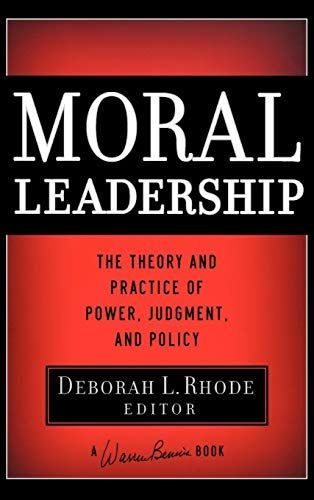
Moral Leadership The Theory and Practice of Power, Judgment and Policy
Moral Leadership brings together in one comprehensive volumeessays from leading scholars in law, leadership, psychology,political science, and ethics to provide practical, theoreticalpolicy guidance. The authors explore key questions about moralleadership such as: How do leaders form, sustain, and transmit moralcommitments? Under what conditions are those processes most effective? What is the impact of ethics officers, codes, trainingprograms, and similar initiatives? How do standards and practices vary across context andculture? What can we do at the individual, organizational, and societallevel to foster moral leadership? Throughout the book, the contributors identify what people know,and only think they know, about the role of ethics in keydecision-making positions. The essays focus on issues such as thedefinition and importance of moral leadership and the factors thatinfluence its exercise, along with practical strategies forpromoting ethical behavior. Moral Leadership addresses thedynamics of moral leadership, with particular emphasis on majorobstacles that stand in its way: impaired judgment, self-interest,and power. Finally, the book explores moral leadership in a varietyof contexts?business and the professions, nonprofit organizations,and the international arena.